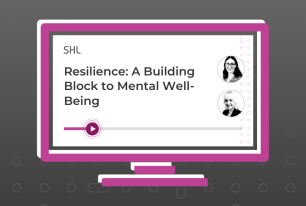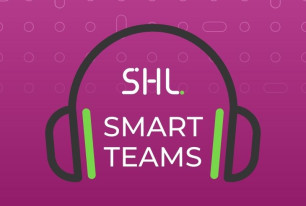You Need a Break: Set Boundaries, Disconnect from Work, and Come Back Stronger
Read our brilliant tips about how to disconnect from work, build healthy working habits, and improve your performance.
Share
In my “realizations from the run” series, I connect insights from my athletic training to best practices in talent and business strategy. In previous posts, I have shared insights about topics like building culture through creating community and for long-term success. In this post, I share insights about the critical role of rest for long-term success.
In my training, I work toward all sorts of goals including speed, distance, endurance, power, technique, and efficiency. I have days focused on each of these elements (often more than one at a time) so that I can gradually improve my performance. Just as important as my training, but far less discussed, are my rest days. Resting allows my body to recover from the work I put in. This time allows my body to form muscle memory, recover from strain, avoid injury, prevent plateauing, and be fresh to put in 100% during my next training session. In fact, the fastest times I have ever logged have been on fresh legs after giving my body a break. This same concept applies to the mental and emotional work we put in every day at work.
Benefits of unplugging from work
Americans are notorious for forgetting that the acronym PTO stands for Paid Time Off: compensation for NOT coming to work so that you can be with loved ones, rest, and enjoy life. Pre-pandemic, we left 28% of our PTO unused, and the issue has only become exacerbated during the pandemic because of canceled plans and an inability to travel. Whether it be because you love your work, you feel you must be available for your team, or you are working toward a big promotion or goal, most of us struggle to unplug from work. Just like with athletic training, however, there are huge and often forgotten upsides to disconnecting:
- Preventing burnout: Failing to rest from work increases the likelihood that you will become less committed and more cynical over time, ultimately increasing the likelihood of leaving or failing to thrive.
- Thinking creatively: People often say they have their best ideas in the shower. This is because, for many, this is the one place where they find peace and quiet and their mind can recover from constant stimulation and distraction. Resting from work is your active recovery: it allows your mind to process challenges and make connections, leading to more creative problem solving and “aha” moments.
- Setting a good example: Giving yourself permission to unplug from work can positively influence others in your professional and personal life to follow suit. Who does not want more engaged team members and more quality time with those they love?
- Making yourself happier and healthier: People who disconnect from work are better able to reduce stress, have better relationships, are more resilient, and live a healthier lifestyle, all of which are linked to happiness and longevity.
- Being more productive: You heard it here. Unplugging from work and resting makes you better at your job in the long run.
- You earned it! That’s it. You work hard and your company provides you with compensation to step away. So just like a delicious meal after a hard training session, you deserve it.
The benefits listed above are all great reasons to put on your out of office ASAP. From an organizational perspective, the positive impact of more engaged, healthier, happier, and productive employees is enormous. Better rested employees will most certainly show up stronger than their drained counterparts, and what is more, the energy your rested employees bring to work is contagious to those around them.
Better rested employees will most certainly show up stronger than their drained counterparts, and what is more, the energy your rested employees bring to work is contagious to those around them.
Creating boundaries between work and home
But what exactly does it mean to rest from work? In today’s tech-centric world the term unplugging is spot on. Previous generations had no choice but to leave their work at work—there were no laptops and cell phones following us everywhere we go. And while the gift of technology has allowed humans more freedom and flexibility in many ways, it also allows work to become the proverbial ball and chain and follow us around to the corners of the earth.
Athletes typically follow schedules and know exactly which days they will be training, and which will be rest. Theoretically, work schedules (e.g. the 40-hour workweek) have this built-in too. However, we know that these boundaries become blurred and often disappear altogether. So, without the rigid schedule of a training plan, how can we intentionally practice setting boundaries? Just like reaching your peak performance goals, it requires discipline and intentionality.
Here are 4 best practices for setting boundaries between work and life:
- Set yourself technology boundaries: If realistic, use different work and personal devices. This minimizes distraction and notifications and sets a physical boundary between work and non-work tools. Many also find it helpful to engage in a shutdown routine that signals the end of the day and prepares for the next. If you cannot resist a peek at your work emails, do not respond to non-critical messages. This reinforces bad habits and teaches others that you are available on-call.
- Limit your total tech time: We transition from screen to screen all day, and our devices constantly ping us for attention. This continuous connection is bad for our physical and mental health and blurs the work/non-work boundaries. Minimize and turn off your notifications. This is important for work, but a best practice for your life overall as well. You can even use your devices to your advantage by setting alerts when you reach specific time limits on devices or apps.
- Engage in activities that require you to unplug: Committing to a hobby, club, workout plan, or other activity that requires you to create boundaries can be a successful tactic to stop working and stay stopped.
- Shake up your evening routine: Most Americans spend their evenings watching TV or engaging in some sort of screen time before bed. This is bad for sleep and makes it easy to pick up your laptop and work while you are watching re-runs of your favorite show. Change up your evening routine with healthier habits that lead to better sleep and more productive days.
Rest days in training prevent injury and plateauing and allow athletes to reach peak performance. Similarly, disconnecting from work on a regular basis is the only way for you to maximize your growth and potential.
Encouraging your employees to disconnect from work
Each of the boundary-setting practices listed above is healthy and worthy of pursuit. For people to engage in healthy boundary setting at scale, organizational leaders must also embrace the importance of rest for it to become a cultural standard. Leaders can start by practicing rest and leading the way, but organizations can also encourage this systematically. Consider these 3 ways organizations can help their people disconnect and find more balance.
- No meeting days: Major players like Google, Facebook, and Asana have all embraced this practice to help their employees eliminate unnecessary meetings, reduce burnout and find more time to be productive.
- Encourage people to take time off: Leaders should actively encourage their employees to take time away, and even monitor to make sure their team members are taking time off and not working themselves to exhaustion.
- Support well-being: Encourage healthy eating and sleeping habits for your employees through educational programs and wellness incentives that actually work. Consider providing resources and support that help employees understand their capacity and learn how to effectively say no at work.
Rest days in training prevent injury and plateauing and allow athletes to reach peak performance. Similarly, disconnecting from work on a regular basis is the only way for you to maximize your growth and potential. Unplugging makes you more creative, happier, healthier, and able to come back ready to perform at 100%. Well-rested employees are more engaged, which allows your organization to achieve goals, innovate, and grow. I am not saying it is easy. As both an athlete and a worker, I too struggle to rest as much as I should. But discipline and intentionality lead to undeniable results and encourage me to continuously pursue healthier balance and boundaries. So, as you consider your career goals, what is one change can you make today to better unplug from work and thrive?
Want more tips for professional development, building culture, and achieving organizational goals? Check out my LinkedIn page and SHL’s blog to read other posts in this series and insights from other thought leaders in the industry.









